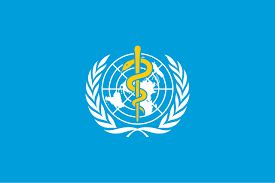
WHO and Saudi Arabia Expand Digital Health Collaboration with Hajj Health Card Initiative
The World Health Organization (WHO) and the Kingdom of Saudi Arabia have announced a major advancement in their digital health collaboration, aiming to enhance healthcare support for the roughly 3 million pilgrims undertaking the annual Hajj pilgrimage. The collaboration will expand the Hajj health card initiative, a digital tool designed to provide pilgrims with seamless access to their critical health information during their journey.
The Hajj health card is built on the WHO Global Digital Health Certification Network’s (GDHCN) public key infrastructure, providing a secure platform for summarizing essential health details such as medication needs, allergies, immunization status, and pre-existing conditions. Pilgrims can authorize healthcare providers in Saudi Arabia to access their health information, ensuring they receive personalized, high-quality care during their pilgrimage.
Dr. Jeremy Farrar, WHO’s Chief Scientist, emphasized the significance of the initiative: “Today marks notable progress in WHO’s support to Member States to expand access to safer and person-centered digital health tools. We are thankful for the collaboration with Saudi Arabia and look forward to building further capacity in digitized health systems.”
Successful Pilot Phase and Future Expansion
In 2024, as part of a pilot collaboration, over 250,000 pilgrims from Indonesia, Malaysia, and Oman received Hajj health cards. These countries were able to issue their own national versions of the card using global standards, demonstrating the initiative’s potential to improve the safety and quality of healthcare for pilgrims. The success of the pilot has paved the way for further expansion, with WHO and Saudi Arabia committing to improve and scale up the program to additional countries.
LEAN, Saudi Arabia’s digital health partner, will continue to provide technical expertise and data security to ensure the smooth implementation of the initiative across more participating nations.
Strengthening Global Health Systems
The Hajj is the largest religious pilgrimage in the world, attracting pilgrims from over 180 countries. By incorporating the Hajj health card into the GDHCN, WHO aims to improve healthcare access for millions of people while also contributing to global health system strengthening. Dr. Hanan Balkhy, WHO Regional Director for the Eastern Mediterranean, highlighted the initiative’s potential: “This exciting partnership enhances the safety and well-being of millions of pilgrims. By leveraging digital health solutions, we strengthen the quality of care and health systems in the Eastern Mediterranean region and beyond.”
Building on the Global Digital Health Certification Network
Launched in 2023, WHO’s Global Digital Health Certification Network now includes over 80 Member States that utilize international standards to securely share health information. Originally developed to support COVID-19 vaccination certificates, the GDHCN is based on robust public key infrastructure (PKI) encryption, ensuring the authenticity and privacy of health credentials across borders.
The network allows countries to streamline administrative processes, making border controls more efficient and enabling better-informed healthcare visits. The future applications of this initiative could extend to cross-border e-prescriptions, insurance, and telemedicine, ultimately transforming international health collaboration.
By enabling people to carry internationally recognized health credentials, WHO’s digital health initiatives empower individuals with greater control over their health information, improving healthcare access and outcomes across the globe.